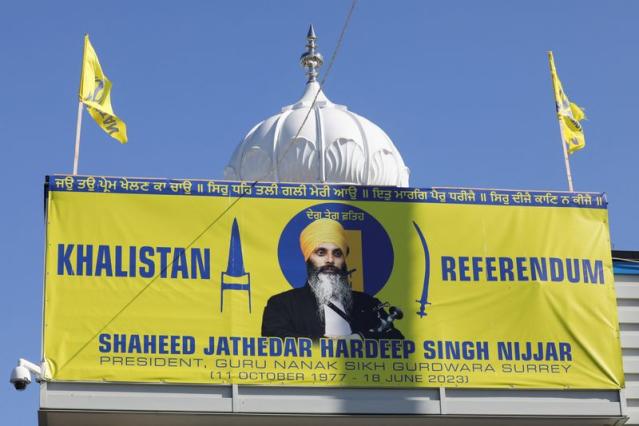
The RCMP confirmed on Friday the arrest of three Indian nationals suspected of being involved in the killing of B.C. Sikh leader Hardeep Singh Nijjar. The arrests occurred nearly a year after Nijjar was fatally shot at the Guru Nanak Sikh Temple in Surrey, B.C.
The suspects, who entered Canada on student visas but are believed to have been working under the direction of Indian intelligence, have been identified as Karanpreet Singh (28), Kamalpreet Singh (22), and Karan Brar (22). They face charges of murder and conspiracy according to B.C. court records, with the alleged offenses taking place in Surrey and Edmonton, where the men resided and were apprehended. Police suspect the involvement of others in the crime.
RCMP Assistant Commissioner David Teboul stated that the investigation into the incident is ongoing and includes inquiries into potential ties to the Indian government. Collaboration with Indian authorities has been challenging in recent years, Teboul noted.
The World Sikh Organization applauded the arrests but raised concerns about the relationship between the Indian government and criminal elements, suggesting a possible strategy to target leaders of the Khalistan movement, advocating for Punjab state’s independence.
Last September, Prime Minister Justin Trudeau implicated the government of Prime Minister Narendra Modi in the case, alleging credible links to Indian agents. India denied involvement, leading to strained diplomatic relations between Ottawa and New Delhi.
Canadian officials are investigating whether Nijjar’s murder was part of an Indian intelligence operation targeting the Khalistan separatist movement, which has gained traction within Sikh communities globally.
Nijjar, a plumber and temple president, had been accused by India of leading the Khalistan Tiger Force terrorist group but had not faced charges in Canada.
The killing occurred against a backdrop of rising transnational repression, where foreign states employ intimidation, coercion, and violence to advance their interests abroad. Colin P. Clarke, research director at The Soufan Group, attributes this trend to a sense of impunity among governments, emboldening them to target diasporas without fear of consequences.




